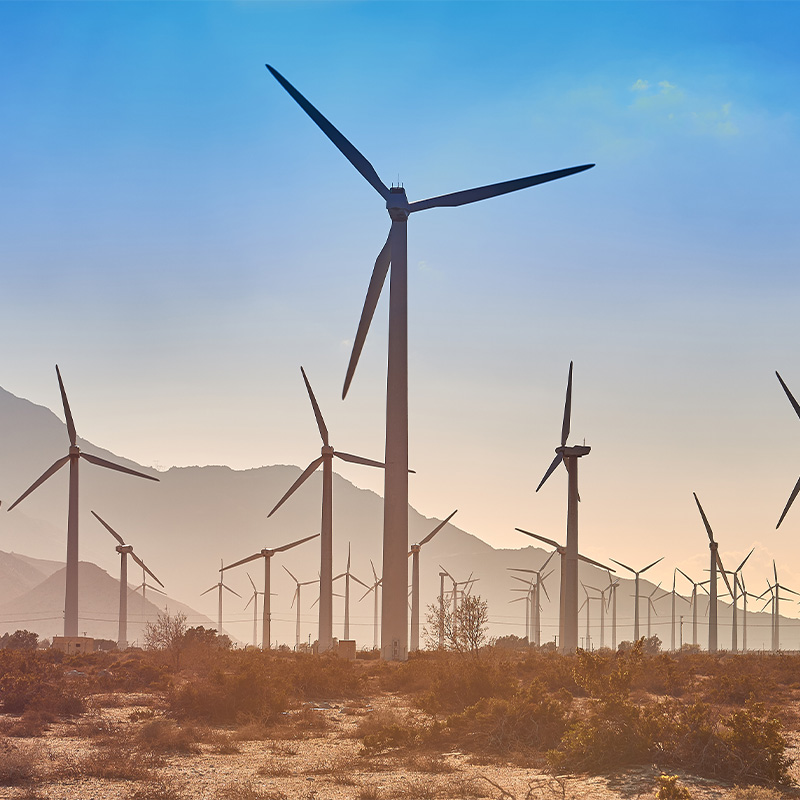
“You can have any color economy you like, but it must be green!”
“You can have any color economy you like, but it must be green!”
By Harry Davies, Country Manager USA, harry.davies@greenrecruitmentcompany.com
Henry Ford and Green Energy
Henry Ford is rightly revered as one of the greatest industrialists the US has ever produced. His infamous decision in 1909 to only supply the Model T Ford in one color and his statement on that fact has gone down in history as one of the most quoted comments by a business leader. The essence of Ford’s decision boiled down to a few highly worthwhile considerations; that it was better to focus on making cars affordable and reliable as well as cheap as possible. This would drive greater car adoption and a better experience in the long run. It may feel seem strange to some to begin an article on the green economy and green energy specifically with a paean for an at times problematic industrialist (you can’t agree with all his ideas) who drove the success of the motor car, but it is the essence of his idea rather than its specific application that is worthwhile.
At present the world is locked into a struggle with the Coronavirus. Once that fight is done, and in fact before it is even remotely over, the world and the US will also have to face the economic and social consequences of the virus. This leads us back to Ford, one of the best ways to renew the US economy is with renewable energy. In fact, we can have any color economy we like, but it must be green…
A Green Engine for the Economy
An early quick win for the economy would be investment in green energy infrastructure. There is a direct correlation between this and job creation.
Currently around 3 million Americans work in Renewable Energy and the priority should be to help preserve their jobs by supporting existing schemes. The next step should be to provide schemes to support workers in fossil fuel industries to transition to Green Jobs. Queensland in Australia is a great example of how coal workers have been encouraged to take on green jobs. The US needs to do this at much greater scale. With oil prices as low as they have been during the crisis, now is the time to help workers transition into green jobs.
There is no better time for the upgrading of America’s infrastructure. One of the bills currently before the senate is the American Energy Innovation Act. The bill seeks to modernize the US’ electricity transmission infrastructure. With a few targeted investments, it could help to ensure that the grid is upgraded with a clean energy focus, which will create new jobs. It will also help unlock one of America’s specific challenges, that most of its renewable energy potential sits in the Mid-West, whilst the fastest growing demand sits on the East and West Coast.
It is also important to point out that not backing green energy, can also mean being left behind. The rest of the world is going to carry on pursuing green energy so it would be easy to get left behind.
“An idealist is a person who helps other people to be prosperous”
Returning to a different Henry Ford quote leads neatly into the next point on the Green Economy. A recurring theme of clean energy in the US is how it can help reduce inequality and improve outcomes for the widest range of communities. In previous articles its been interesting to look at how cooperatives have provided serious benefits e.g. for rural communities Louisiana and it is great to see the cooperative system helping communities that would otherwise have been left behind.
It is also really encouraging to see the Navajo Nation engaging in the potential for green energy, as a part of the US that has often struggled with employment and economic development, a fresh focus on renewables could be a real game changer. Historically the Navajo Nation has been more associated with uranium and especially coal. With its coal plants in decline there is a fantastic legacy in terms of high voltage transmission that can be linked to new solar and wind potential. Some commentators believe that the Navajo Nation could play host to 10GW of Solar Energy and 1GW of Wind Energy. In an area where 15,000 homes lack access to electricity and running water, the change that such a move could bring, would stretch the benefits beyond job creation.
“There's just one thing that's permanent in this world, and that's change”
In terms of closing thoughts, its good to reflect on the idea of change. Knowing, like Henry Ford did, that change is a permanent condition – its important to understand that the term is somewhat neutral, you can change for the better or change for the worse. Whilst the coronavirus has wreaked havoc across the world, there is a great opportunity to make its legacy a positive one by building a greener, more resilient economy that creates jobs, helps the environment and works for everyone.
